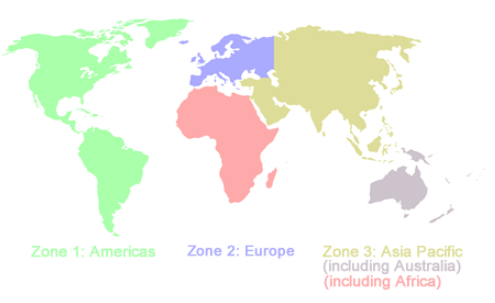Elections
ISPGR is inviting all members in good standing, to participate in the 2022 – 2026 Board Elections. We are holding elections to vote for four new Board Members to keep the board at the maximum of 13 Board Members.
The election consists of one vote for each of the Americas, Europe and Asia-Pacific region and one vote with all candidates. Please note the winners will be those who have the highest number of votes for each region for Americas, Europe and Asia-Pacific.
These four board members will serve a four-year term effective October 1, 2022 and expiring September 30, 2026.
Board elections open July 6 – July 21, 2022
Nominees
Americas Representative Slate

Li-Shan Chou
Iowa State University
Professor and Chair, Department of Kinesiology
Li-Shan Chou is a professor and chair in Department of Kinesiology at the Iowa State University. He currently serves as the Deputy Editor to Gait and Posture and Section Editor to Archives of Physical Medicine and Rehabilitation. Dr. Chou’s research has contributed to our understanding of how dynamic gait balance is controlled and resulted in novel assessment protocols and biomechanical markers that provide objective quantification of deficits in gait and balance control. He has mentored 17 PhDs and many masters and undergraduate students, and his team published more than 120 peer-reviewed papers. Dr. Chou has served the American Society of Biomechanics (ASB) in many roles, including as a DEI discussion panelist, and was elected as a Fellow of ASB in 2019. He served as the President for the ISB 3-D Analysis of Human Movement (3-D AHM) Technical Group (2018-20) and chaired the 16th 3-D AHM International Symposium n 2021. As an ISPGR Board member, he is committed to maintain an academic/scholarly environment that is inclusive, safe, and supportive and to enhance the partnership among engineers, scientists and clinicians that leads to discoveries and innovative technologies to enhance patient care.

Kaylena Ehgoetz Martens
University of Waterloo
Assistant Professor, Department of Kinesiology and Health Sciences
As a proud member of the International Society of Posture and Gait Research community for the past 10 years, it would be an honour to serve as an elected representative for the Americas. I am an Assistant Professor in the Department of Kinesiology and Health Sciences at the University of Waterloo in Canada, and have a strong passion for multidisciplinary research focused on posture and gait related disorders. Over the past decade my research has benefitted greatly from the exceptional international scientific exchange that takes place at this world congress. Thus, I would like to offer my enthusiasm, knowledge, experience, and dedication to represent the interests and views of my fellow ISPGR members to the Board of Directors.
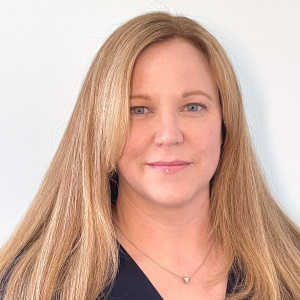
Kara Patterson
University of Toronto
Associate Professor
As an Associate Professor at the University of Toronto and Senior Scientist at the KITE-Rehabilitation Research Institute, I lead the RELEARN lab (http://www.relearnlab.ca/), which strives to improve mobility outcomes for people with neurological conditions. My research interests include quality and rhythmicity of the gait pattern, as well as rehabilitation of gait and balance using music-, rhythm- and dance-based interventions. I hold a Ph.D. from the University of Toronto, with postdoctoral training at McGill University, and I practiced clinically as a physiotherapist in Toronto and Chicago. Having been engaged with ISPGR for over 15 years, I know it as an open and accepting organization that is committed to scientific excellence without pretense or posture. If elected as an ISPGR board member, upholding these core values would be my primary objective. Additionally, I will create opportunities for open dialogue between basic and clinical researchers to foster multidisciplinary collaborations and advance the field.
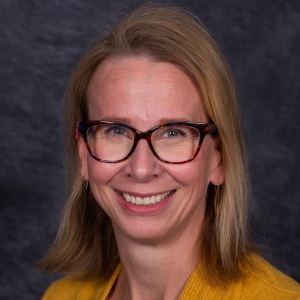
Jenna Yentes
Texas A&M University
Associate Professor, Department of Kinesiology & Sport Management
As a previous Promising Scientist Awardee (2019), I am dedicated to ISPGR’s excellence and growth. I regularly attend meetings, have written a blog, and volunteered for the awards committee. I will bring skills in organization, leadership, and inclusion to the Board. I have successfully organized both national (>600) and local meetings (~200). I have chaired city-wide to departmental committees, and am the Assistant Director of a nationally-recognized institute of sports medicine and human performance. I am an advocate of underrepresented groups in STEM, serving on DEI committees. I have a unique background, taking gap years and working for public and private sectors; providing me skills not necessarily common in academia. My expertise in organizational leadership and skills in problem solving and project & people management, will complement the Board. My research interests add a unique lens to human movement, namely coupling of biorhythms, variability analysis, and resiliency in older adults.
Asia Pacific Slate
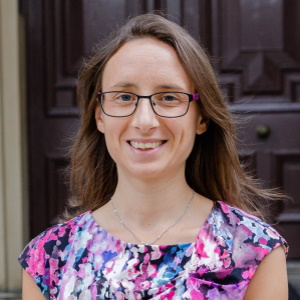
Anna Hatton
The University of Queensland
Senior Lecturer in Physiotherapy, School of Health and Rehabilitation Sciences
I have been an ISPGR member since 2012, contributing to all biennial congresses and writing blogs, over this period. I am an accomplished physiotherapy researcher (>50 publications; >AU$1.7M funding; >AU$149k awards) in the field of sensorimotor control and falls, with a focus on plantar sensation and footwear. My research involves engagement with high-profile multinational med-tech industry: this network of external stakeholders will help to further the Society’s partner relations. As an Associate Editor for ‘Gait and Posture’, I am aptly poised to strengthen the ISGPR’s partnership with its official journal; to facilitate educational/satellite events and communication. Through my role as Co-Director, Centre for Neurorehabilitation, Ageing and Balance Research, and Senior Lecturer in Physiotherapy (University of Queensland), I offer skills in developing initiatives for students, early/mid-career researchers, and clinical members. As Secretary for the Australian and New Zealand Falls Prevention Society, I have experience leading administrative aspects of an international board.
Europe Representative Slate

Tom Buurke
University Medical Center Groningen
Assistant Professor
I am an assistant professor at the University Medical Center Groningen and a postdoctoral fellow at KU Leuven. I wish to serve on the ISPGR board to actively support the promotion and sharing of knowledge in posture and gait research. My research is focused on the neuromechanics of dynamic balance control during walking, in which I pursuit the connection between basic and clinical movement sciences. I utilize a combination of experimental and computational approaches to study human posture and gait in healthy and clinical populations, which allows me to initiate and collaborate on a broad range of projects and studies. As an ISPGR board member I will use my experiences and skills to benefit the society and its members, and facilitate interaction between members, especially concerning state-of-the-art posture and gait neuromechanics. I look forward to continuing to contribute to ISPGR in the future.
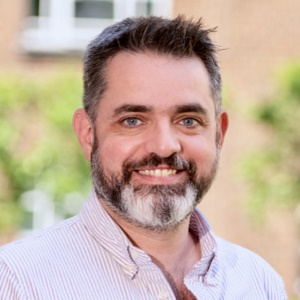
Mihalis Doumas
Queen's University Belfast
Senior Lecturer
I have been active in the Posture and Gait research community since 2006, when I started my postdoctoral work at KU Leuven on posture-cognitive dual-task performance in healthy aging. Since then I have investigated aspects of posture and gait including multisensory integration, dual-tasking and anxiety, in populations including healthy young and older adults, people with depression, Parkinson’s and autism. My passion for posture and gait research stems from the impact this research can have in quality of life for older adults and clinical populations. A key priority in my research is to be ‘user-led’ by asking participants’ input in setting priorities and designing studies. As a Board member I will help the society organise initiatives to showcase the impact of our members’ research and to establish stronger links with the community of our participants and their families around the world.
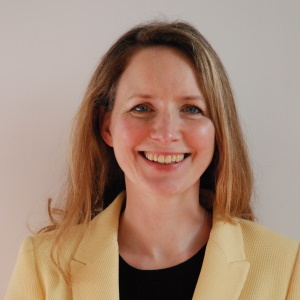
Isabelle Killane
Technological University Dublin
I am aligned with the goals and focus of ISPGR and I would like to employ my skills as an ISPGR Board Member. I am skilled in posture and gait research (13 publications, 461 citations, h-index:10). As a Lecturer in a School of Engineering I promote my research in lectures delivering research-led content that is current and more often online. I strive to lead and motivate the School to demand expert practises. I believe that ISPGR can drive improvements: more new methods need to be translated into the clinic, clinicians need to play an integral part and engineers need more kinesiology/quantitative physiology training. My leadership, organisational and delegation skills through 5 years Project Management experience (VERVE, WELCOME) and a global network of collaborators in research, academia, clinical medicine and industry would drive this challenge. If elected, I would be delighted to attend quarterly meetings and represent the views of members.

Richard Mills
Manchester Metropolitan University
Senior Lecturer in Biomechanics
I completed my PhD in 2018 at the University of Ottawa (Canada), before joining Manchester Metropolitan University (UK) where I am now Senior Lecturer in Biomechanics. I have held various leadership roles which have helped develop key skills relevant to the ISPGR Representative role. My main research interest is in the development of postural control mechanisms and how they are affected by impairment throughout the lifespan. I first joined ISPGR in 2016 when I was invited to speak at the Training School, and really value the opportunities for networking and learning the society provides, having capitalised on them to establish my own network of collaborators and multi-disciplinary work. As such, if elected, I would work to continue raising the visibility of the ISPGR community across inter-related academic fields, and focus on bringing more undergraduate/graduate students to the society to support development of the next generation of academics.

Melvyn Roerdink
Vrije Universiteit Amsterdam
Associate professor Technology in Motion, Department of Human Movement Sciences
Technology for measuring and improving gait and balance is evolving rapidly. As associate professor Technology in Motion, I aim to stay at the forefront of these developments and inform others about them (e.g., through educational pre-conference workshops at ISPGR about emerging Kinect and Mixed-Reality technologies). My mission is to generate knowledge and solutions for scientific and societal needs with such technologies, for and with you (e.g., students, scientists, clinical professionals, patients, entrepreneurs). My team and I worked on walking adaptability, fall risk and cueing, yielding technological solutions for studying, assessing, and training context-dependent walking, like the C-Mill, Interactive Walkway and Holocue. I have learned to work as an academic in an entrepreneurial manner, building partnerships with companies and startups, essential for ensuring that intended users can use our technology. I will bring and share these skills to ISPGR, which will hopefully further increase our society’s societal impact.
Open Slate
All candidates listed above
Election Calendar
Elections open:
July 6, 2022
Elections close:
July 21, 2022
How to Vote
You will receive an invitation to vote by email. If you have not received the email notification, please contact the Society Secretary
About ISPGR Elections
Board members can be nominated, or self nominate, to sit on the Board of Directors for a Board Term. Each term typically lasts four years in duration and elections are held every two years. The ISPGR member base vote on and determine the Board of Directors.
To be accepted for nomination all nominees:
- Must be current members in good standing
- Must have been a continuous member, in good standing, over the past four years minimum (2010-2014)
- Must be in a position to fulfill the expectations of the duties of Board Members
The board is particularly interested in members with skill sets related to organisational leadership, for example: Financial Management, Sponsorship / Partner Relations, Social Media / Communications, and skills transferable to managing and leading the Society.
Board members are expected to:
- Participate in quarterly meetings of the board (one meeting is a face-to-face meeting that takes place at the Society’s annual congress, the other 3 meetings are managed by teleconference call)
- Represent the views of members of the Society to the Board of Directors
- Serve on standing or ad-hoc committees as required
- Maintain their membership in good standing for the duration of their term
- Participate without consideration of financial compensation
- Responsible for electing officers from within the qualified list of Board Members, when these roles become vacant
